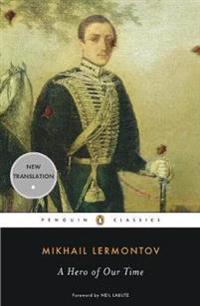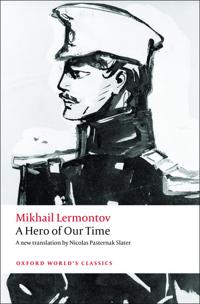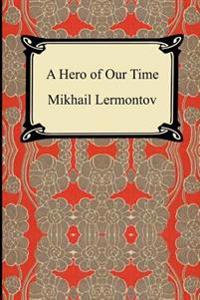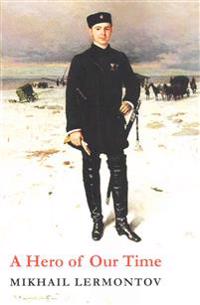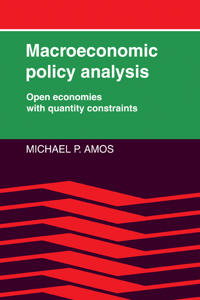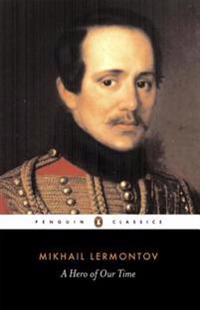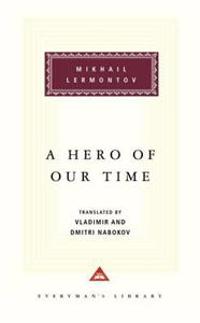A Hero of Our Time (Häftad)
avMikhail Lermontov
ISBN: 9780143105633 - UTGIVEN: 200908A masterpiece of Russian prose, Lermontov's only novel was influential for many later nineteenth-century authors, including Tolstoy, Dostoyevsky and Chekhov. Lermontov's hero, Pechorin, is a dangerous man, Byronic in his wasted gifts and his cynicism, and desperate for any kind of action that will s[...]
A Hero of Our Time (Häftad)
avMikhail Lermontov
ISBN: 9780199652686 - UTGIVEN: 201304'After all that - how, you might wonder, could one not become a fatalist?' Lermontov's hero, Pechorin, is a young army officer posted to the Caucasus, where his adventures - amorous and reckless - do nothing to alleviate his boredom and cynicism. World-weary and self-destructive, Pechorin is aliena[...]
A Hero of Our Time (Häftad)
avMikhail Lermontov
ISBN: 9781420924909 - UTGIVEN: 200501Originally published in Russian in 1840 Lermontov's "A Hero of Our Time" greatly influenced the later works of other great Russian authors such as Dostoyevsky and Tolstoy. "A Hero of Our Time" is a pioneering work in the genre of the anti-hero novel. The novel's narrative is the story of Pechorin a [...]
Mikhail Lermontov. Maloe sobranie sochinenij (Inbunden)
ISBN: 9785389051287 - UTGIVEN: 2013-01SoderzhanieStikhotvorenija str. 5-200Pesnja pro tsarja Ivana Vasilevicha, molodogo oprichnika i udalogo kuptsa Kalashnikova Poema, str. 201-218Mtsyri Poema, str. 219-241Demon Poema, str. 242-276Maskarad Drama, str. 277-416Geroj nashego vremeni Roman, str. 417-571[...]
A Hero of Our Time (Häftad)
avMikhail Yurievich Lermontov
ISBN: 9780140447958 - UTGIVEN: 200110
The first example of the psychological novel in Russia, A Hero of Our Time influenced Tolstoy, Dostoyevsky, and Chekhov, and other great nineteenth-century masters that followed. Its hero, Pechorin, is Byronic in his wasted gifts, his cynicism, and his desire for any kind of action-good or ill-[...]A Hero of Our Time: Foreword by Vladimir Nabokov, Translation by Vladimir Nabokov and Dmitri Nabokov (Inbunden)
avMikhail Yurievich Lermontov
ISBN: 9780679413271 - UTGIVEN: 199206In its adventurous happenings-its abductions, duels, and sexual intrigues-"A Hero of Our Time" looks backward to the tales of Sir Walter Scott and Lord Byron, so beloved by Russian society in the 1820s and '30s. In the character of its protagonist, Pechorin-the archetypal Russian antihero-Lermontov'[...]

